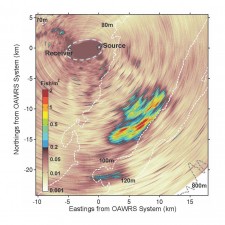Marine Fisheries
A Dwindling Resource
Fish are a primary food source to many marine mammals and a major source of protein to mankind worldwide. Yet despite —or perhaps because of — their importance, worldwide fish stocks are in decline with serious implications for the state of the ocean ecosystems and for mankind.
Our researchers are working on ways to accurately measure the size of existing fisheries and to better track how they change over time. They’re also working to uncover the basic rules of behavior for marine life—for example, how fish form schools and what governs their evolution. By understanding the basic biology of our fisheries, we will be able to make better management decisions, ensuring that the seas remain a valuable source of fish for future generations.
The sustainable management of fisheries is an important political issue worldwide. Thanks to our interdisciplinary emphasis, the findings of our fisheries biologists are shared directly with policy specialists to create new and better management plans.
Marine fisheries is a major interest of the MIT Sea Grant Program, which works with fishing and coastal communities to understand the issues — environmental, social, and regulatory — that affect community members’ lives and livelihoods. Our research, liaison, and outreach efforts are designed to identify problems and seek solutions that balance fishing communities’ needs with the critical goal of sustaining a healthy environment.





